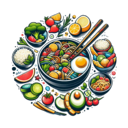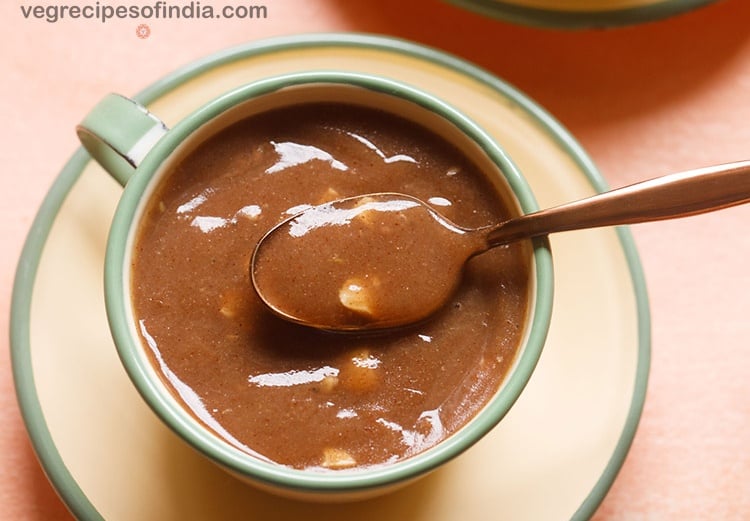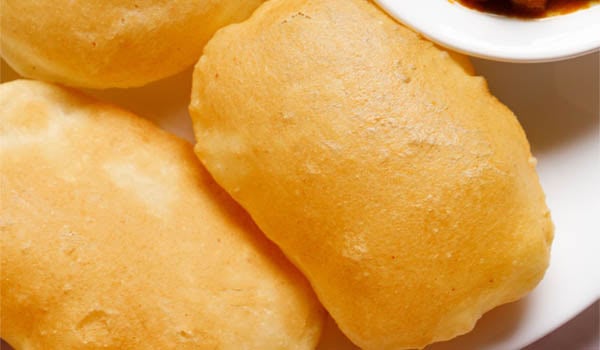Indian cuisine boasts a rich tradition of incorporating ancient grains that are not only nutritious but also filling, having been staples in our diets for generations. Among these grains, millets have recently garnered renewed interest both in India and globally due to their numerous health benefits. One notable millet is ragi, commonly referred to as finger millet or red millet. In this article, I present a curated collection of Ragi Recipes alongside the health benefits of ragi that you may find valuable.
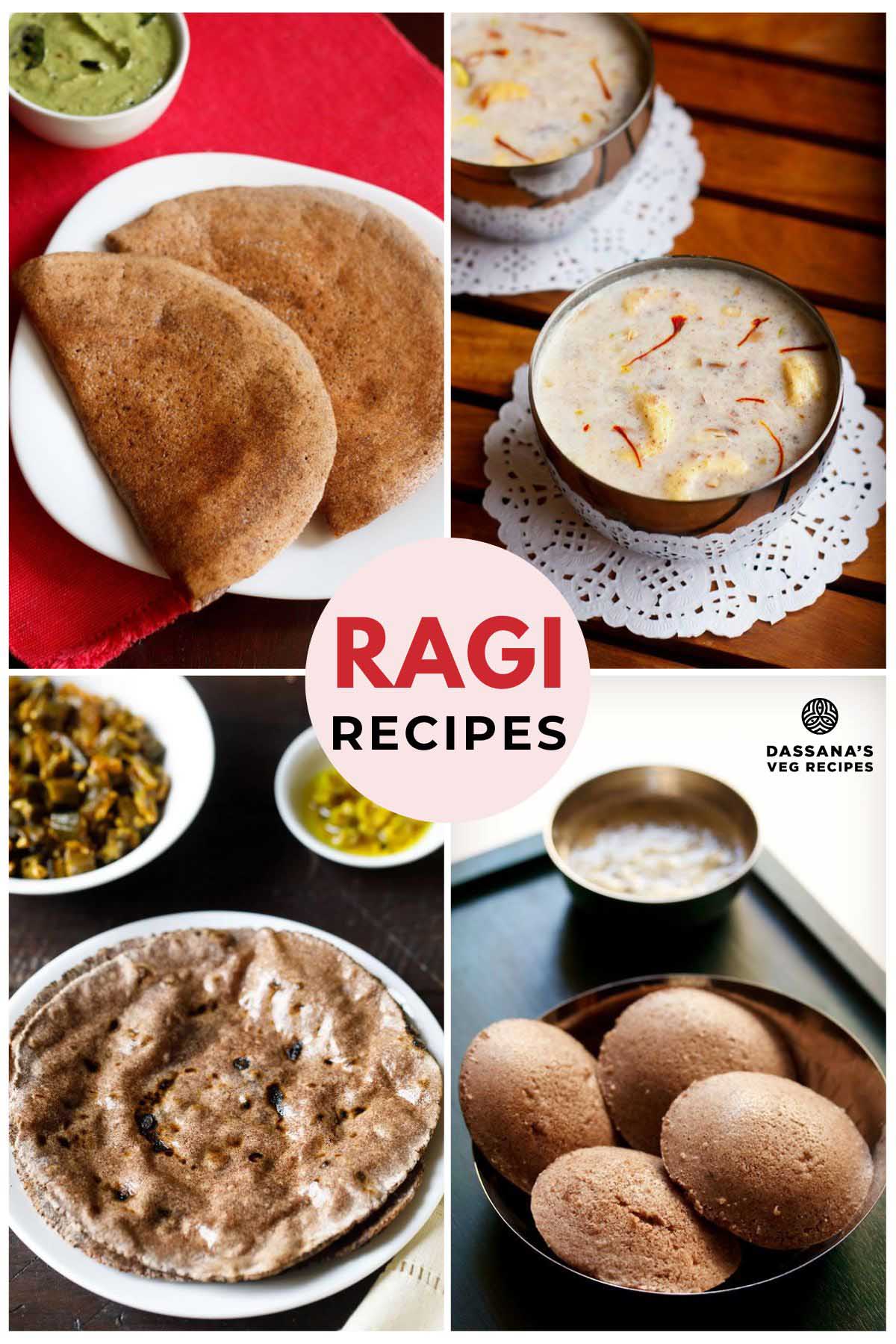
About Ragi or Finger Millet
Ragi is a remarkable grain, small and round with a reddish hue, predominantly consumed in the states of Maharashtra, Andhra Pradesh, and Karnataka in India. In Marathi, it is referred to as ‘nachni,’ while in Hindi, it is known as ‘mandua.’
As previously mentioned, ragi (finger millet) is an ancient grain that originated in South Africa before spreading to India. Archaeological evidence of its presence dates back to around 2000 BCE at the Hallur site in Karnataka’s Haveri district.
Today, Karnataka remains one of the leading producers of ragi. In rural areas of South Karnataka, finger millet continues to be a staple in daily diets.
In this region, ragi is often enjoyed as savory and soft balls known as Ragi Mudde, which are also popular in the South Indian state of Andhra Pradesh.
The benefits of ragi are numerous. This protein-rich grain is also high in calcium and can help lower blood glucose levels.
There are many compelling reasons to incorporate finger millet into your diet, which I will detail in the following sections.
Indian cuisine features a variety of Ragi Recipes that are cherished across different regions of the country. These include flatbreads like bhakri or roti, idli, vada, dosa, pudding, porridge, and papad, among others.
Both ragi millet and ragi flour can be utilized to create a wide array of dishes. For instance, Ragi Rotti (flatbread) is a classic dish from northern Karnataka.
In Maharashtra, well-known Ragi Recipes include nachni ladoo, nachni bhakri, and nachni papad. Ragi porridge, also known as Ragi Malt, is a common dish often prepared with milk or water and sweetened with sugar or jaggery. It is typically given to infants, young children, and those recovering from illnesses.
Alongside the benefits of ragi, I have compiled a selection of Ragi Recipes from my blog. Most of these recipes are simple yet delicious, and I encourage you to try them all.
Health Benefits of Ragi
As mentioned earlier, ragi or finger millet is an excellent source of protein and calcium. It is particularly important for women to ensure adequate calcium intake, as a deficiency over time can lead to porous bones and various health issues.
Consequently, ragi is an excellent choice for women, children, and serves as a great plant-based protein source for vegans and vegetarians alike.
In addition to these benefits, here are some more reasons to include ragi in your diet:
- Ragi is a good source of iron, making it beneficial for individuals with anemia.
- This grain contains essential amino acids that are vital for the human body; ragi is also easily digestible and highly nutritious.
- The ideal time to consume finger millet is during the summer or hot seasons, as it has a cooling effect on the body.
Ragi Recipes
Ragi Dosa
Ragi Dosa is a nutritious variant of dosa or crepes that can be prepared using either ragi seeds or ragi flour. There are various methods to make ragi dosa, including an Instant Ragi Dosa, which requires no grinding, and a Fermented Ragi Dosa made with a ground fermented ragi-rice batter, similar to traditional dosa preparation.
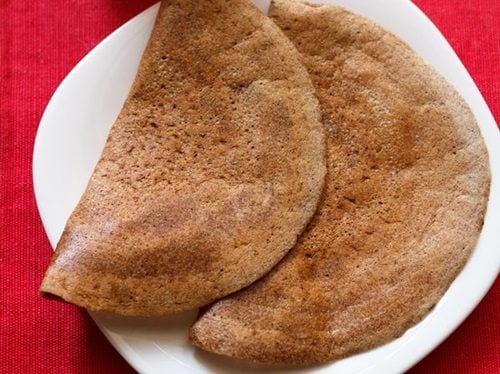
Ragi Mudde
Ragi Mudde consists of simple and nutritious balls made from finger millet flour and water. They are a staple food in Karnataka and are also enjoyed in parts of Tamil Nadu and Andhra Pradesh. These wholesome balls can be considered one of the original forms of ‘protein bites.’
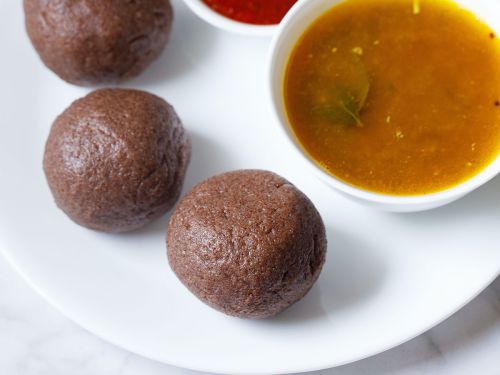
Ragi Malt
Ragi Malt is a nutritious breakfast drink made with ragi flour (or sprouted ragi flour), water or milk, and sweeteners like jaggery or sugar. You can also enhance it with nuts, dried fruits, and flavorings to suit your taste. I often add cardamom powder along with a few almonds or cashews. This simple recipe results in a flavorful drink that can be prepared quickly.
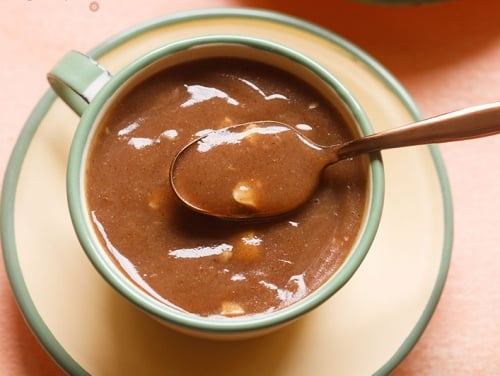
Ragi Roti
Ragi Roti is a rustic and hearty Indian flatbread made with ragi and whole wheat flour (atta). This is one of the simplest and best ways to incorporate ragi into your meals. The preparation is similar to that of Roti or Jowar Roti, and it pairs well with any sabzi, stir-fry, dal, or legumes curry.
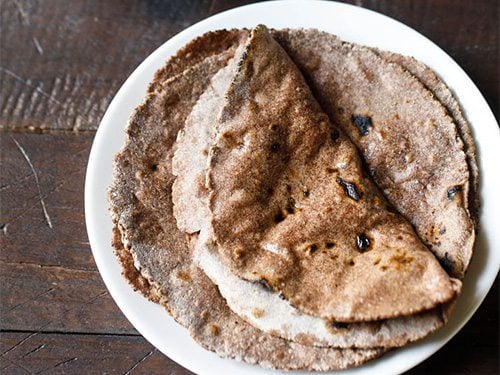
Ragi Laddu
Ragi Laddu is a quick, easy, and healthy variant of ladoo made with just three ingredients: ragi, jaggery, and ghee (clarified butter). These ladoos can be stored at room temperature for up to a week in a cool climate. In hot or humid conditions, it’s best to refrigerate them.
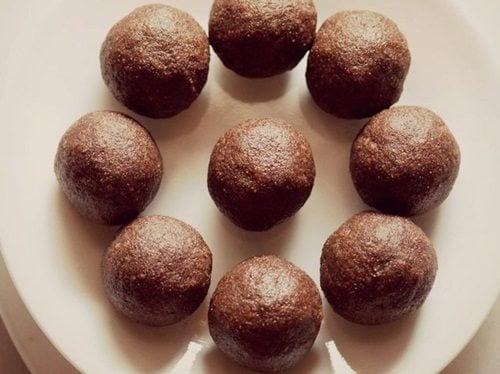
Ragi Idli
Ragi Idli is a wholesome and delicious variety of idli made with finger millet flour, idli rice, and urad dal. This gluten-free, vegan, and gut-friendly dish can be enjoyed with sambar and coconut chutney for a satisfying breakfast or brunch.
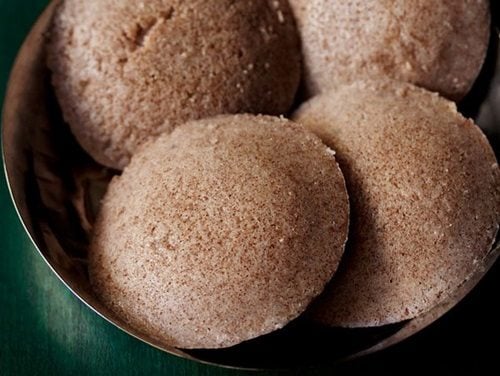
Ragi Halwa
Ragi Halwa is a variation of Suji Halwa, made with ragi flour, ghee, sugar, milk, and cardamom powder. The ghee adds a delightful aroma and flavor, while the milk enhances the taste. This halwa serves as a healthy sweet dish suitable for toddlers and children.
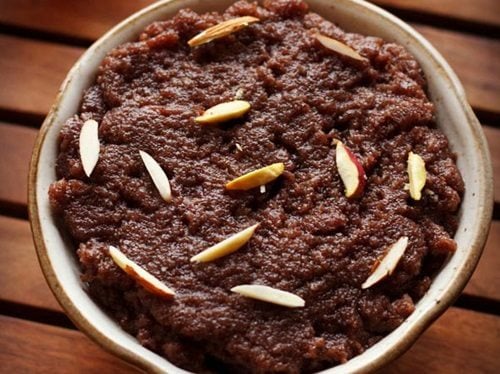
Ragi Kheer
Ragi Kheer is a simple, quick pudding-like dessert made with ragi flour, sugar, milk, ghee, and cardamom powder. This easy recipe can be prepared in less than 30 minutes.
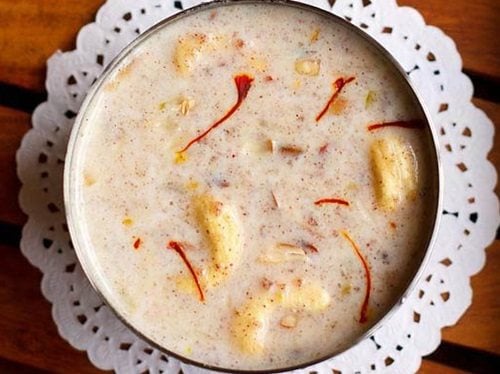
Thalipeeth
Thalipeeth is a spiced multigrain flatbread from Maharashtrian cuisine. It makes for a delicious and wholesome breakfast or snack option. Ragi flour can be incorporated into Thalipeeth along with various other flours.
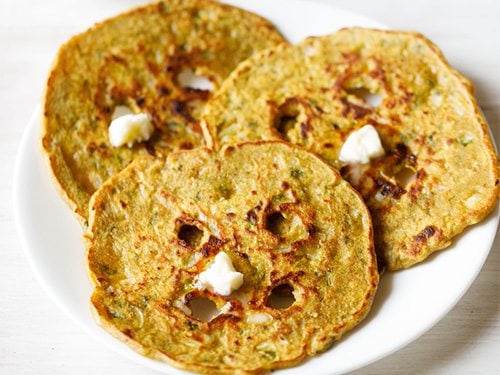
This collection of Ragi Recipes from the blog archives was first published in April 2018.
